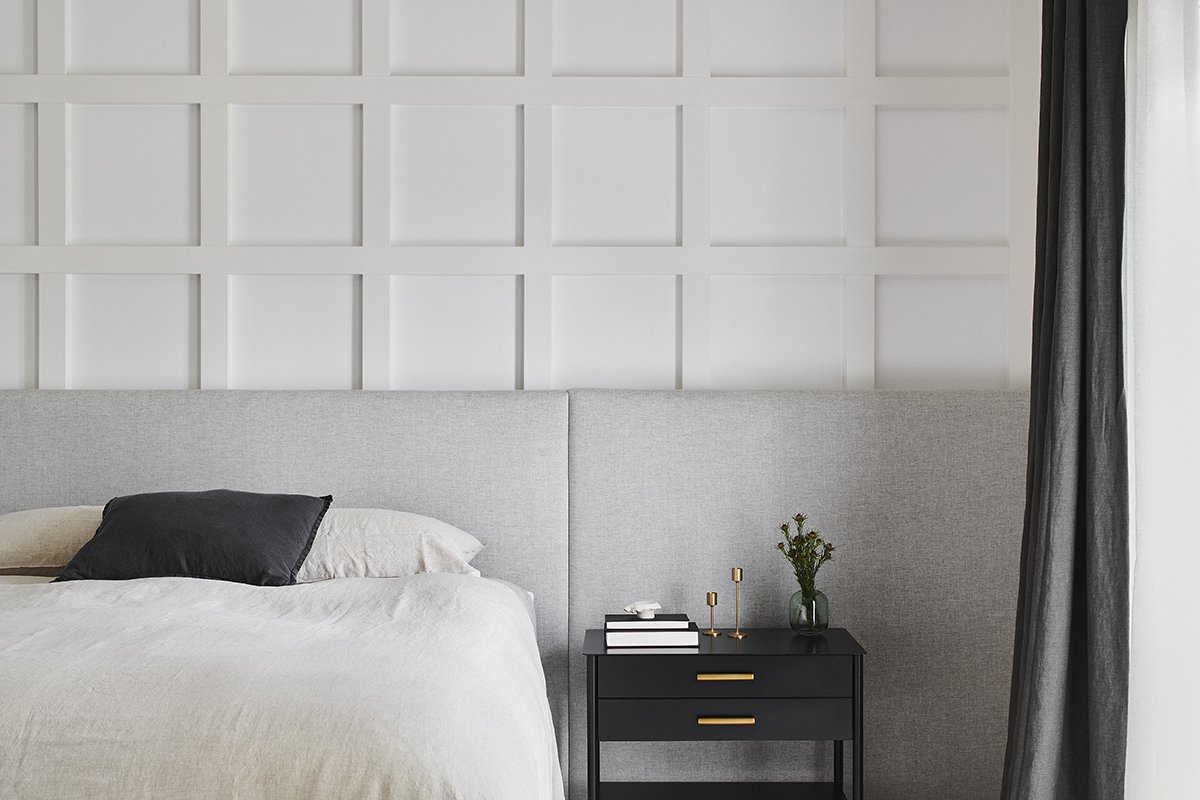Navigating Life's Major Changes with Restorative Interior Design
Embracing change with a supportive space.
Life's major events - whether they're personal achievements, changes, or challenges - often bring upheaval and can leave us feeling overwhelmed or lost. But a well thought-out, restorative interior design and styling can create a soothing, supportive environment that helps guide us through life's turning points. We will explore the transformative power of interior design, offering ideas to create a rejuvenating space.
Adding plants to your décor is one easy decorating tip that so many people overlook. Some people might add a pot plant to a bathroom ledge, or a kitchen windowsill, but greenery can lift the look, feel and energy of any room in the house.
Create a restorative foundation with minimalist design
A minimalist approach can be one of the most powerful ways to reduce stress. Decluttering and simplifying decor has been shown to alleviate anxiety and increase focus. When dealing with big life changes, simplicity is essential for clarity. Try stripping down decor to essentials the perfect time when moving, incorporating open shelving, and reducing visual clutter. Choose functional beautiful pieces that encourage peace, allowing you to fully inhabit the space.
Design Tip | Use hidden storage solutions to keep surfaces clean, helping you maintain a calm environment.
Interior Flow | Residential Dining Room Design in Ascot Vale
Incorporate soothing colors and textures for emotional comfort
Color and texture can greatly influence mood, which is crucial during emotional transitions. Opt for calming shades like soft blues, gentle greens, or warm neutrals that promote relaxation. Mix in a variety of textures—such as soft throws, linen curtains, or wool rugs—to create a cocooning effect.
Design Tip | Layer different fabrics and materials to provide a tactile experience that feels comforting, enveloping you with a sense of stability when you need it most.
Interior Flow | Residential Bedroom Design in Ascot Vale
Prioritize rest with thoughtful bedroom design
A restful bedroom is foundational during times of change. It’s where you recharge, reflect, and escape. Create a sanctuary by investing in quality bedding, blackout curtains, and soothing decor. Declutter the space to promote better sleep and use soft lighting for a calming atmosphere. Add personalized items like a favorite photo or book to reinforce a sense of grounding.
Design Tip: Try arranging furniture with Feng Shui principles in mind, especially the bed placement, to promote balance and tranquility.
Interior Flow | Residential Bedroom Design in Chadstone
Bring Nature Indoors to Promote Well-Being
Biophilic design—or the practice of integrating natural elements into your home—has restorative effects. Indoor plants are great for improving air quality, reducing stress, and adding natural beauty. Even in urban areas, you can create a green oasis with easy-care plants like snake plants or pothos. Natural wood, stone elements, or even nature-inspired artwork can further connect you to the outside world.
Design Tip: Arrange plants around high-activity areas, like your work or dining space, to keep a constant connection with nature, aiding mental clarity and positivity.
Designate a Reflective Space for Self-Care and Meditation
Reflection and self-care are essential during life transitions. Dedicate a small corner or alcove as a personal space for mindfulness practices. A meditation area with soft cushions, a grounding rug, and a few meaningful objects can provide a retreat from the busyness of life.
Design Tip | Choose low seating options like floor cushions or poufs, and add candles, essential oils, or incense for sensory calmness.
Interior Flow | Residential relaxation and meditation area
Establish an Organized Workspace for a Clear Mind
Major life events often come with changes to work routines. A dedicated, organized workspace can provide the mental clarity and focus you need. Focus on ergonomic furniture, good lighting, and practical storage solutions. This setup encourages productivity and limits the mental clutter that can add to feelings of stress.
Design Tip | Use cable management solutions and minimalistic desk organizers to maintain a tidy workspace that promotes efficiency and keeps distractions at bay.
Source | Pinterest
Incorporate personal touches for emotional grounding
During life changes, a few sentimental objects can remind you of who you are. Thoughtfully chosen items like family photos, travel mementos, artwork or heirloom pieces bring a grounding sense of comfort and nostalgia. Personal touches in your decor help reinforce your identity, making your space feel safe and familiar even in uncertain times.
Design Tip | Incorporate these items in strategic places like your nightstand or shelves, blending them with neutral decor elements to create a balanced look that feels both cozy and sophisticated.
Interior Flow | Residential design living room
Finding resilience through design
Creating a supportive environment isn’t just about aesthetics; it’s about crafting a space that nurtures and strengthens you during life’s pivotal moments. From choosing the right colors and textures to integrating natural elements and personal touches, restorative interior design allows us to build an oasis of calm. These design choices, however small, empower us to face change with resilience and create spaces that truly reflect and uplift us as we move forward.
By focusing on these principles, you can transform your home into a place of support and renewal, turning it into a foundation from which you can embrace whatever life brings your way.
Krystal Sagona
With over 20 years experience as a residential & commercial Interior Designer, Krystal has built a strong reputation in the design industry. Award winning designer and highly intuitively creative, Krystal has the innate ability to understand and deliver your creative brief. Krystal is a registered Draftsperson with the Victorian Building Board (VBA) and a qualified Feng Shui consultant with the AFSC (Association of Feng Shui Consultants) International.









